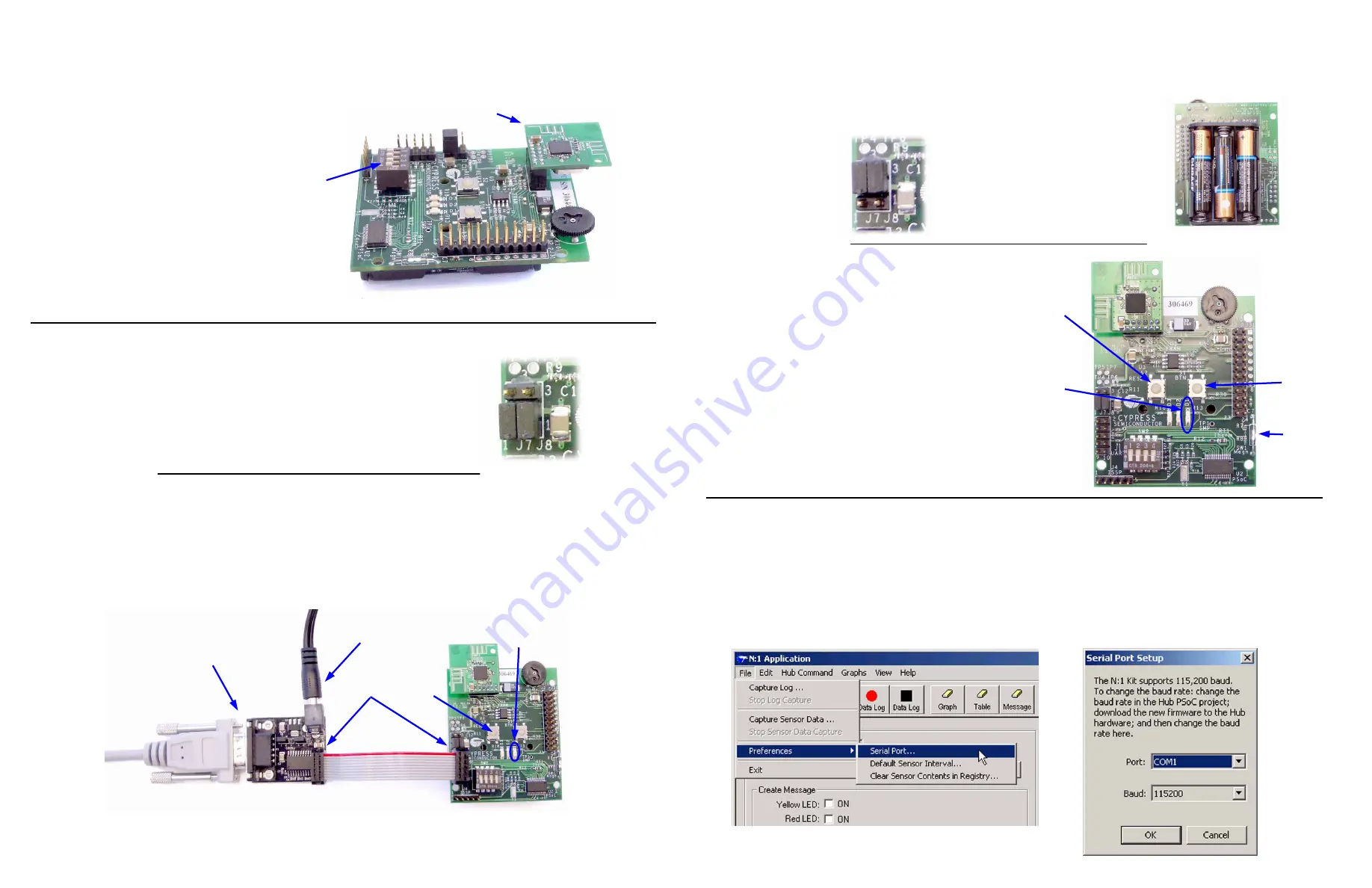
4. Software Installation and Configuration
1. Insert the WirelessUSB N:1 DVK CD-ROM into your PC’s CD drive and launch the CD installer:
•
D:\Install WirelessUSB N-to-1 DVK.exe
2. Follow the on-screen instructions to complete the CD installation.
3. Launch the “WirelessUSB N-to-1” software application from the desktop shortcut created by the installer.
•
The application can also be found directly on the CD at
D:\Software\Nto1\Nto1\Release\Nto1.exe
3. Press
the
Reset
button on each
Sensor Node Board
.
4. The Green LED (D1) will flash every time the PSoC
wakes up to transmit a packet.
a. By default, each sensor will periodically
transmit a packet once every 5 seconds.
5. There are two ways to initiate an asynchronous packet
transfer
a. Pressing
the
User
Button
will initiate a sensor
report
b. Passing the magnet within ¾” of the
Magnetic
Reed
Switch
will also initiate a sensor report.
3
B
. Sensor Setup
3
5a
5b
4
4. Go to the
File
menu and select
Preferences ->
Serial Port
5. Select the desired COM port from the pull-down
menu, select 115200 Baud, and click OK.
1. Ensure
the
Power Jumpers
for the 4
Sensor Node Boards
are in the following
positions:
Sensor:
J7: position 2-3
J8: position 2-3
2. Power up the 4
Sensor
Node Boards
by
installing the AAA
batteries into the battery
holders on the back of
each sensor
3. Hardware Assembly
3
A
. Hub Setup
1. Ensure the Power Jumpers for the Hub Node
Board are in the following positions:
Hub:
J7: position 1-2
J8: position 1-2
1. Install a WirelessUSB
Radio Module
into
each of the 5 Node Boards
2. For default operation, make sure the DIP
switches are all off
2. Connect
the
10-pin Serial Ribbon Cable
from J1 of the
Serial Adapter Board
to J1 of the
Hub Node Board
observing pin1 polarity
.
3. Connect
the
Serial Cable
between P1 of the
Serial Adapter Board
and a free PC COM port.
4. Power up the
Hub Node Board
by plugging the
5V DC Power Adapter
into J4 of the
Serial
Adapter Board
and into an available power outlet.
5. Press the Reset button on the
Hub Node Board
.
6. The Green LED (D1) should now be flashing, indicating that the Hub is operational.
3
4
2
5
6
1
2



















